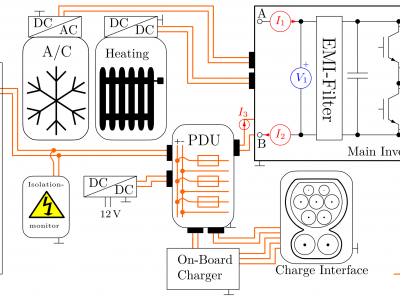Machine Learning

This datasets contains Xrays of positive COVID-19 and Pneumonia patients.
For the COVID-19 class, three sources were used in this work, BIMCV-COVID-19+ (Spain), COVID-19- AR (USA) and V2-COV19-NII (Germany).
The pneumonia class data came from 3 sources: (i) the National Institute of Health (NIH) dataset, (ii) Chexpert dataset and (iii) Padchest dataset.
- Categories:
 989 Views
989 Views<p>The dataset comprises 2035 images from 14 different software architectural patterns (100+ images each), viz., Broker, Client Server, Microkernel, Repository, Publisher-Subscriber, Peer-to-Peer, Event Bus, Model View Controller, REST, Layered, Presentation Abstraction Controller, Microservices, and Space-based patterns.</p>
- Categories:
 745 Views
745 Views
Supplementary materials for manuscript: Self-absorption Correction in X-ray Fluorescence Computed Tomography with Deep Convolutional Neural Network,
- Categories:
 97 Views
97 ViewsThis dataset has information of 83 patients from India. This dataset contains patients’ clinical history, histopathological features, and mammogram. The distinctive aspect of this dataset lies in its collection of mammograms that have benign tumors and used in subclassification of benign tumors.
- Categories:
 2716 Views
2716 ViewsThe simulation code for the paper:
"AoI-Aware Resource Allocation for Platoon-Based C-V2X Networks via Multi-Agent Multi-Task Reinforcement Learning"
The overall architecture of the proposed MARL framework is shown in the figure.
Modified MADDPG: This algorithm trains two critics (different from legacy MADDPG) with the following functionalities:
- Categories:
 1028 Views
1028 Views
The demand for technologies relying on the radio spectrum, such as mobile communications and IoT, has been growing exponentially. As a consequence, providing access to the radio spectrum is becoming increasingly more important. The ever-growing wireless traffic and the increasing scarcity of available spectrum warrants efficient management of the radio spectrum. At the same time, machine learning (ML) is becoming ubiquitous and has found applications in many fields for its ability to identify patterns and assist with decision-making processes.
- Categories:
 255 Views
255 ViewsThe proposed dataset, termed PC-Urban (Urban Point Cloud), is captured with an Ouster LiDAR sensor with 64 channels. The sensor is installed on an SUV that drives through the downtown of Perth, Western Australia (WA), Australia. The dataset comprises over 4.3 billion points captured for 66K sensor frames. The labelled data is organized as registered and raw point cloud frames, where the former has a different number of registered consecutive frames. We provide 25 class labels in the dataset covering 23 million points and 5K instances.
- Categories:
 2565 Views
2565 Views
This dataset supports researchers in the validation process of solutions such as Intrusion Detection Systems (IDS) based on artificial intelligence and machine learning techniques for the detection and categorization of threats in Cyber Physical Systems (CPS). To that aim, data have been acquired from a water distribution hardware-in-the-loop testbed which emulates water passage between nine tanks via solenoid-valves, pumps, pressure and flow sensors. The testbed is composed by a real partition which is virtually connected to a simulated one.
- Categories:
 3650 Views
3650 Views




